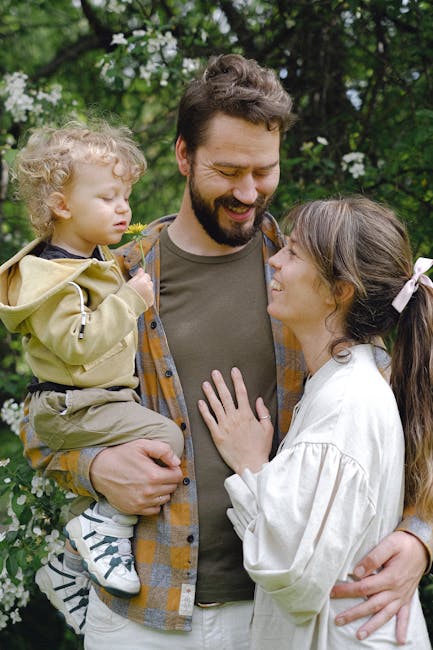Baby Boy Blood of a Man: Exploring the Power and Symbolism of Legacy and Strength
The phrase “baby boy blood of a man” evokes a powerful image: a delicate infant possessing the inherent potential for strength, resilience, and the legacy of his ancestors. It’s a phrase rich in symbolism, hinting at the complex interplay between vulnerability and inherent power, fragility and enduring strength. This exploration delves into the multifaceted meaning behind this evocative phrase, examining its cultural significance, literary representations, and the emotional resonance it holds for parents and society.
The Biological Reality: Heritage and Inheritance
On a purely biological level, the phrase speaks to the undeniable link between generations. A baby boy inherits his genetic makeup from both parents, carrying within him the physical traits, predispositions, and even some inherited characteristics from his paternal lineage. This biological connection is the foundation upon which many cultural and symbolic interpretations are built. The “blood” represents this direct lineage, the unbroken chain connecting him to his father, grandfathers, and beyond.

This inheritance extends beyond mere physical attributes. Genetic predisposition can influence personality traits, aptitudes, and even health outcomes. Understanding this biological inheritance can help parents nurture their child’s potential, recognizing both strengths and challenges that may be passed down through generations. It’s a reminder that while the baby boy is an individual, he’s also deeply connected to a larger family history.

Cultural and Symbolic Interpretations Across History
The symbolic weight of “blood” in many cultures is significant, often signifying kinship, lineage, and belonging. Throughout history, various societies have emphasized the importance of maintaining a strong paternal line, emphasizing the role of the father in shaping the identity and future of his son. This emphasis often translates into rituals, ceremonies, and traditions designed to solidify this bond and transmit cultural values and knowledge.
Examples of Cultural Significance:
- Ancient Roman and Greek Cultures: Emphasis on lineage and paternity as integral to social standing and political power.
- Many Indigenous Cultures: Oral traditions and rituals that emphasize the connection between generations and the passing down of ancestral wisdom.
- Modern Societies: While the explicit emphasis on patriarchal lines has diminished in many modern societies, the underlying sense of inheritance and family legacy persists.
The phrase “blood of a man” also suggests a specific type of strength and resilience, often associated with masculine ideals. It hints at courage, perseverance, and the ability to overcome adversity. However, it’s crucial to note that these qualities are not exclusively confined to one gender. Rather, the phrase serves as a metaphor for inherent potential and the capacity for growth and development within every individual.
Literary and Artistic Representations
The concept of inherited strength and legacy is a recurring theme in literature and art. Many stories depict characters struggling with their family history, grappling with both the positive and negative aspects of their inheritance. These narratives often explore the challenges of living up to expectations, breaking free from negative patterns, and forging one’s own path while still honoring one’s heritage.
Examples in Literature and Film:
- Stories of Fathers and Sons: Narratives exploring complex relationships between fathers and sons, showcasing the impact of parental influence and the struggle for individual identity.
- Mythological Figures: Many heroes and legendary figures from mythology embody the concept of inherited strength and destined greatness, reflecting cultural beliefs about destiny and legacy.
- Modern Novels and Films: Contemporary works exploring themes of intergenerational trauma, family secrets, and the complexities of inheritance both tangible and intangible.
These artistic representations illustrate the enduring appeal of the themes associated with “baby boy blood of a man.” They highlight the enduring tension between inherited destiny and the possibility of self-creation, exploring the ways in which individuals negotiate their relationship with their past while shaping their own future.
The Emotional Resonance for Parents
For parents, the phrase holds a profound emotional significance. It represents hope, dreams, and aspirations for their son’s future. It embodies the weight of responsibility, the desire to guide and protect, and the anticipation of witnessing their child grow into a strong and capable individual. The phrase evokes a potent mix of love, pride, and protective instinct.
It is also a reminder of the complexities of parenthood. It acknowledges the challenges that lie ahead and the potential for both triumphs and setbacks. It speaks to the ongoing journey of raising a child, supporting their development, and helping them navigate the complexities of life. The phrase serves as a powerful expression of parental hope and dedication.

Beyond Gender: Embracing Strength and Potential in All Children
While the phrase traditionally evokes masculine connotations, the underlying themes of strength, resilience, and legacy are applicable to all children, regardless of gender. Every child possesses unique potential and inherent capabilities. The power of inheritance and the influence of family history apply to both sons and daughters. The focus should be on nurturing each child’s individual strengths and supporting their personal growth.
The modern understanding of gender roles encourages a broader perspective, emphasizing the importance of fostering individuality and celebrating diverse strengths in all children. Rather than limiting the message to a specific gender, we should embrace the universal message of potential and the power of legacy for all.
Conclusion: A Legacy of Hope and Potential
The phrase “baby boy blood of a man” resonates with powerful symbolism, encompassing biological inheritance, cultural traditions, and deeply personal emotions. It speaks to the profound connection between generations and the enduring hope for a brighter future. While its traditional interpretations may be rooted in patriarchal structures, the underlying message of strength, resilience, and legacy transcends gender, serving as a reminder of the incredible potential residing within each child.
Understanding this multifaceted meaning allows us to appreciate the phrase’s evocative power and to engage in a more nuanced conversation about inheritance, family, and the development of each individual’s unique capabilities. Ultimately, it’s a celebration of life, potential, and the enduring strength of the human spirit.

